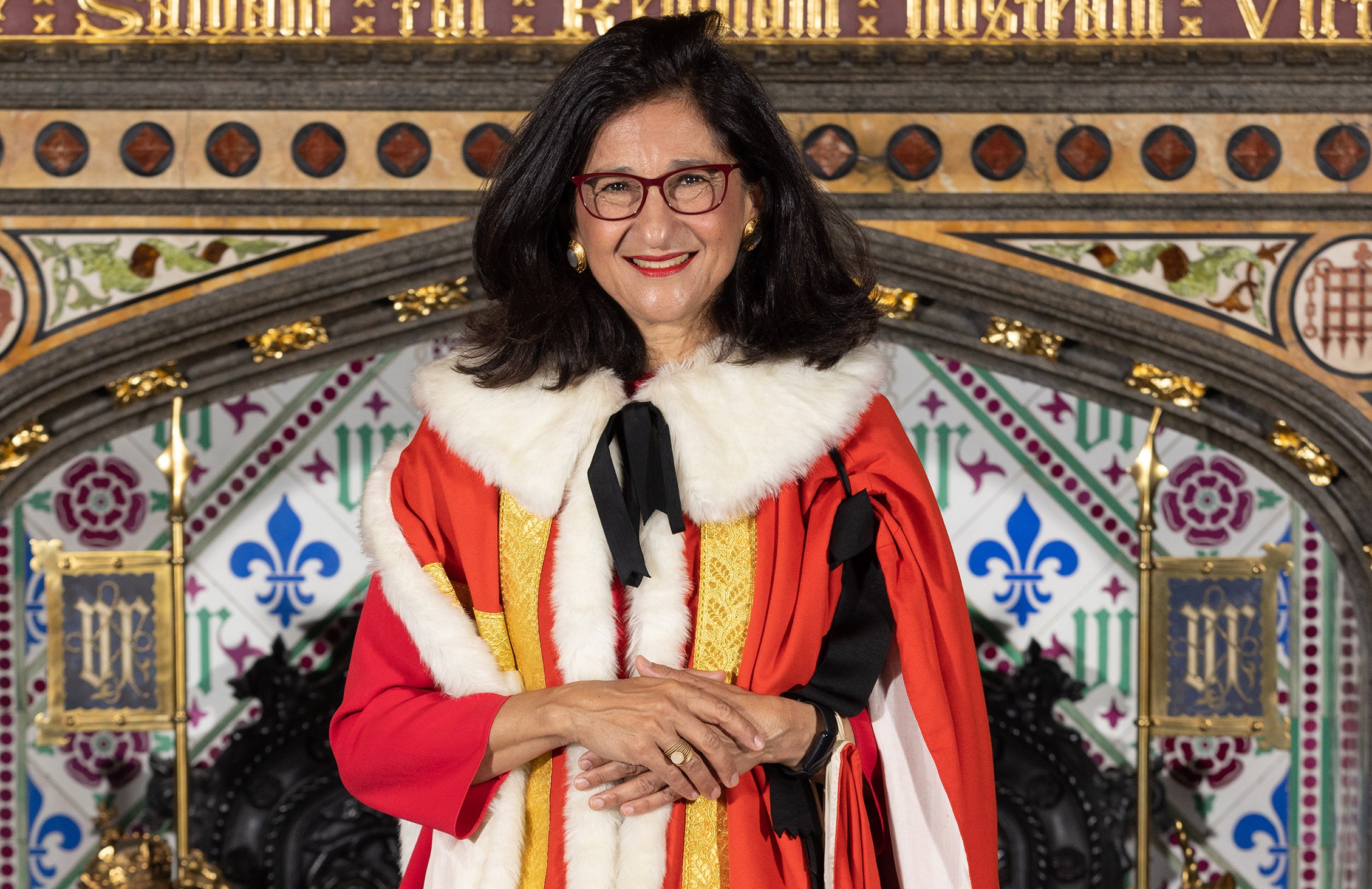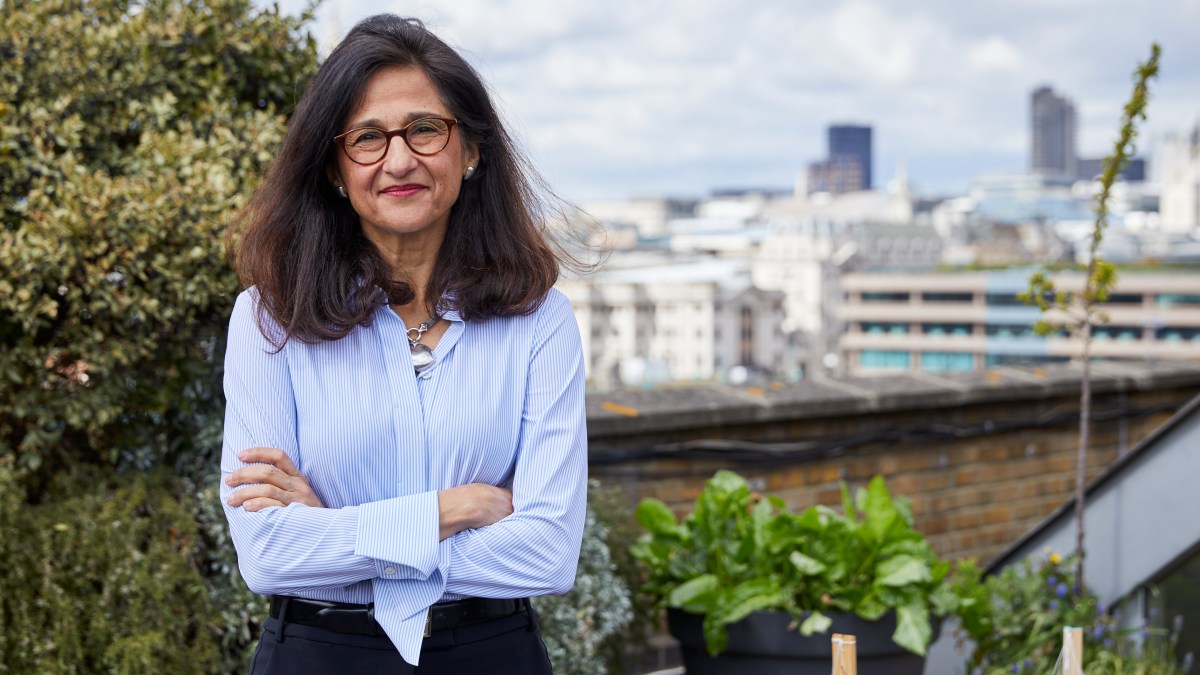As CVs go, Baroness Minouche Shafik’s is pretty stellar — at least in the world of economics. She has worked at top levels for the World Bank, the International Monetary Fund (IMF) and the Bank of England. In between she’s had stints as a leader in academia and the civil service.
Yet the peer, 63, is going to have to use all her knowledge and experience if she is to make a success of her latest job: chief economic adviser to Sir Keir Starmer.
Shafik’s appointment to No 10 this week was part of the prime minister’s reset of his team after the summer break. The idea was to bring in new blood (and brains) to try to kick-start Britain’s stubbornly stagnant economy against a backdrop of empty Treasury coffers, a nervous bond market and an army of left-wing backbenchers itching for Labour to turn on the spending taps.
So who is Shafik and what does her background suggest she will do in her new position?
Critics have already labelled her as another leftie economist desperate to tax the wealthy into submission. But Shafik’s political thinking is not as easy to stereotype as some of Starmer’s other recent appointments to No 10.
For a start, when she joined the House of Lords in 2020 at the request of Boris Johnson she took a position as a crossbencher, indicating no political affiliation.

Baroness Shafik was made a member of the House of Lords in 2020
AVALON
Her background is more varied than most top economists. She was born in Alexandria in 1962, and was only four years old when her family left Egypt after President Nasser’s nationalisations wiped out most of their assets. They settled in America and Shafik has often spoken about how that rupture shaped her views on opportunity and security.
Her education mixed American and British influences. After time at the American University in Cairo and the University of Massachusetts Amherst she completed a masters at the London School of Economics (LSE) and a doctorate at Oxford, with her thesis on Egyptian investment policy foreshadowing a career-long focus on how states and markets interact.
After leaving education, Shafik’s ascent through the international economic system was rapid. At just 36, she became the youngest vice-president at the World Bank. Colleagues from that period remember a methodical coalition-builder. Sir Andrew Steer, now a professor at the LSE, recalled her knack for “getting inside [people’s] heads” to land agreement while Christine Lagarde, the president of the European Central Bank, has praised her “attentive and inclusive” leadership style.
Shafik returned to the UK at the tail end of the last Labour government, serving as permanent secretary at the Department for International Development from 2008 to 2011. Shortly after David Cameron’s coalition was elected, she left to become a deputy managing director at the IMF, one of the most senior roles in global economic governance. She returned to the UK in 2014 to become deputy governor at the Bank of England. During her two and a half years on the bank’s rate-setting monetary policy committee she never once voted for a rate rise, with the financial press labelling her a “dove” as opposed to one of the “hawks” who wanted higher borrowing costs. Publicly Shafik rejected this label, instead calling herself an “owl” and saying the bank should “tread carefully”, indicating her natural caution.
In 2017, Shafik pivoted to academia, joining the LSE as a director before rising to vice-chancellor. Five years later she left to become Columbia University’s first female president. This move to the US brought arguably the most testing period of her career as she was immediately confronted with the bitter campus divisions caused by Israel’s invasion of Gaza following the October 7 atrocity.
Shafik took a harder line than many other US universities on student protests and occupations, at points requesting police assistance to clear Columbia’s grounds. Yet when she was hauled before the House of Representatives education committee to answer on antisemitism and campus safety, she was criticised by all sides with Republicans arguing that she had not gone far enough while civil liberties groups said she had gone too far.
• Columbia University president Minouche Shafik steps down after Gaza protests

Shafik at an education committee hearing in Washington DC
LEX WONG/GETTY IMAGES
Politically, then, where does Shafik sit?
While at the LSE she wrote What We Owe Each Other and the book gives an insight into her philosophy. It argues for a “new social contract” founded on greater investment in early years education and a recalibration of the obligations between generations, including an increase in the state pension age. At the time she explained that “the years in retirement relative to the years in work have grown too much” and that the only way to avoid an undue burden on young people would be to link retirement explicitly to life expectancy.
Intergenerational unfairness has long been a key focus for Shafik, and she has previously called for wealth taxes to address the problem. In 2018 she wrote: “Tax systems have become less progressive as advanced economies lowered corporate taxes and top rates on personal income in the 1980s and 1990s and raised value-added taxes. This is especially problematic given widening inequality in market incomes. And because wealth has grown even more unequal than income, we should explore taxing wealth such as inheritance, land and real estate.”
During a speech in May 2023 she suggested levying redistributive taxes on wealthier pensioners and those with more valuable properties. She was reported as saying: “Those with comfortable pension pots must be expected to pay more towards the common good.” She also proposed property taxes to “direct a flow of capital from those in high-value properties to those unable to get on the property ladder”.
Shafik’s published work and speeches as a whole suggest she is far from a Corbynesque leftwinger intent only on tax and spend. They paint a more nuanced picture of someone who is pro-market but insistent on rules and someone who believes the state should intervene where the market or society fails.
• Patrick Maguire: New hires cannot fill the strategy vacuum at the heart of No 10
One academic who has worked with Shafik described her as “not a particularly political person”. “I never heard her criticise a politician or party,” he explained. “She was always more of a policy person who liked to get her head into a spreadsheet. I would describe her as a progressive technocrat.”
And what of the person behind the politics?
Shafik’s hinterland is international to the core. She holds British and US nationality, speaks Arabic and French as well as English, and has kept close ties to Egypt.
She married the scientist Raffael Jovine in 2002 and had twins the same year, alongside three stepchildren, an experience she’s said sharpened her view of caregiving and work.
Friends say she is warm and kind and can be “very sweet”. Former colleagues say she is a calm and courteous with an appetite for detail over theatre and a preference for consensus where possible. As she moves to Whitehall that may be a virtue — until, inevitably, it isn’t.

